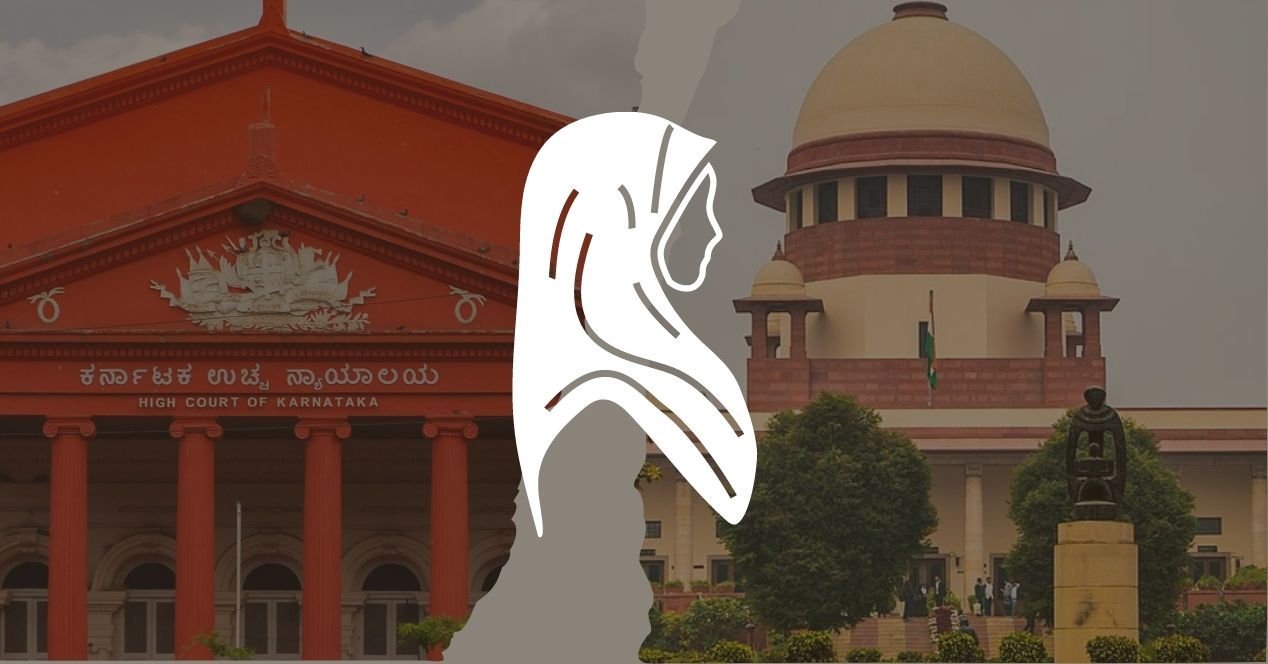Analysis
2022 Supreme Court Review: Gender Equality
SC Judgments in the challenge to the Hijab Ban and on abortion laws for married women were important milestones in equality for women.
The Court dealt with two significant gender equality issues this year—Karnataka’s Hijab Ban in educational institutions and access to abortion for unmarried women in India. Although the Hijab verdict is currently stuck in limbo, the abortion ruling was welcomed enthusiastically.
#1 To Wear Or Not To Wear: Supreme Court Delivers a Split Verdict in the Hijab Case
A 2-Judge Bench comprising Justices Hemant Gupta and Sudhanshu Dhulia delivered a split verdict in the much talked about Hijab Ban case this year. Upholding the ban, Justice Hemant Gupta stated that considering whether the hijab is an essential practice was irrelevant to the case. He added that a ban on religious symbols was valid to maintain uniformity in educational institutions. Striking down the ban, Justice Dhulia held that the ban was unjustified. He stressed the importance of education over dress code.
On February 5th, 2022, a Karnataka State Government Order (GO) instructed all College Development Committees to ban Hijabs in educational institutions. A group of students filed a writ petition challenging the GO in the Karnataka High Court. They protested against the Order claiming that it violated their fundamental rights to religion, freedom of expression and privacy. They further argued that wearing the hijab was an ‘essential religious practice’ under Islam. Essential religious practices are those without which the nature of a religion would change. Such practices are constitutionally protected.
On March 15th, a 3-Judge Bench of the Karnataka HC upheld the ban. They ruled that wearing a hijab is not an essential religious practice and does not violate the fundamental rights of Muslim girl students. On the same day, the High Court’s verdict was challenged at the Supreme Court. The SC had to deal with key issues: does the Order violate the freedom of religion, freedom of expression and the right to privacy? Further, the Court was considering if the hijab is an ‘essential religious practice’.
Students arguing against the ban claimed that wearing the hijab was an essential religious practice and was a protected fundamental right under the Constitution. They reasoned that an ‘essential practice’ should be determined by the religious community itself, and was not for the Courts to decide. Additionally, they claimed the ban denied education to women, violated the freedom of expression and was discriminatory. The State of Karnataka argued that uniforms were necessary for maintaining unity, equality and discipline in educational institutions. They elaborated that this can be made possible by separating religion from education.
On October 13th, the SC delivered a split verdict on the issue. In instances of a split verdict, the Chief Justice of India is expected to refer the matter to a larger bench.
#2 Marital Status Does Not Determine a Woman’s Right to Abortion
On September 29th 2022, a 3-Judge bench comprising Justices D.Y. Chandrachud, A.S. Bopanna and J.B. Pardiwala declared that unmarried women have the same right to access abortion as married women.
A pregnant unmarried woman filed a writ petition in the Delhi High Court seeking an abortion under Section 3(2)(b) of the Medical Termination of Pregnancy Act 1971 (MTP Act) and Section 3B(c) of Medical Termination of Pregnancy Rules 2003 (Rules). As per these provisions, a woman is allowed to terminate her pregnancy before 24 weeks. The Rules further allow women to terminate their pregnancy if there is a change in their marital status. On July 15th, 2022, the Delhi HC dismissed her petition stating that the concerned provisions of the MTP Act and Rules do not apply to unmarried women.
On July 18th, she filed an appeal at the Supreme Court. The SC considered one key issue: Does the exclusion of unmarried women under the provisions of the MTP Act and Rules violate the right to equality?
Advocate (Dr). Amit Mishra, representing the petitioner, stated that the concerned provisions are arbitrary and discriminatory as they explicitly disqualify unmarried women from access to abortion. Additional Solicitor General Aishwarya Bhati submitted that the provisions of ‘change in marital status’ should be read to include unmarried women. Further, she argued that women have the right to reproductive and bodily autonomy irrespective of their marital status.
The Bench found that treating unmarried women as a different class is unjustified and prohibiting their access to abortion violates the right to equality. They further held that unmarried women have the same right to autonomy as married women and forcing a woman to continue an unwanted pregnancy will directly violate that autonomy.




